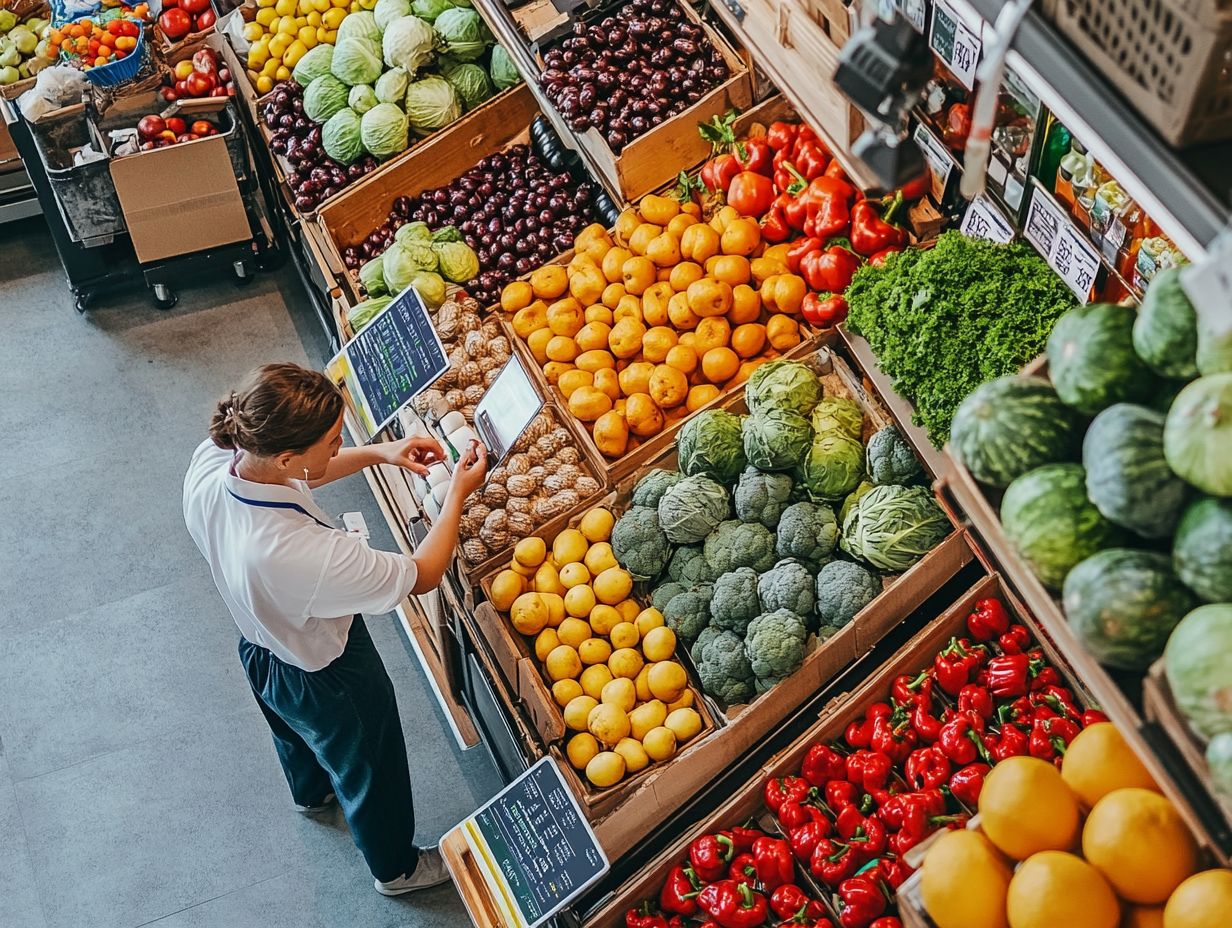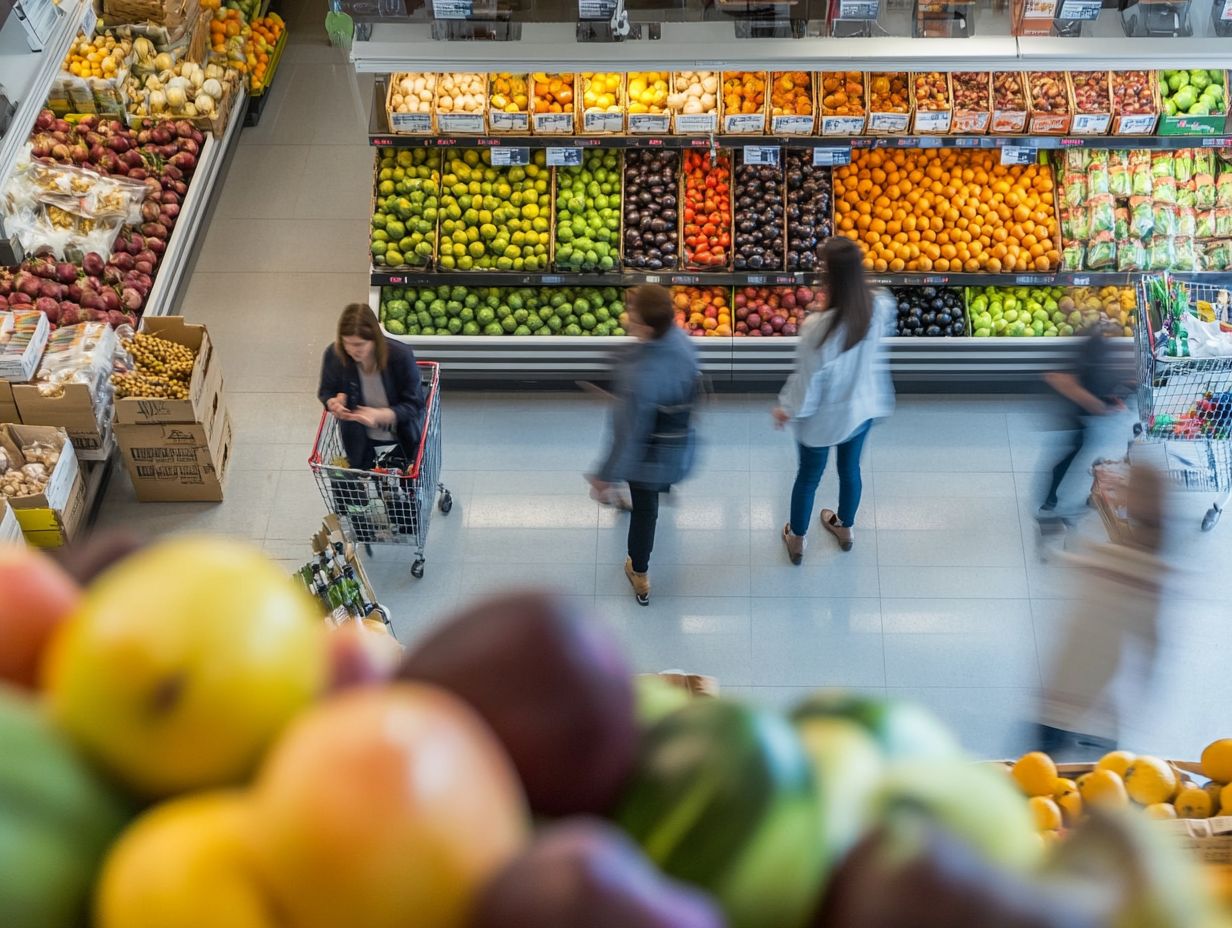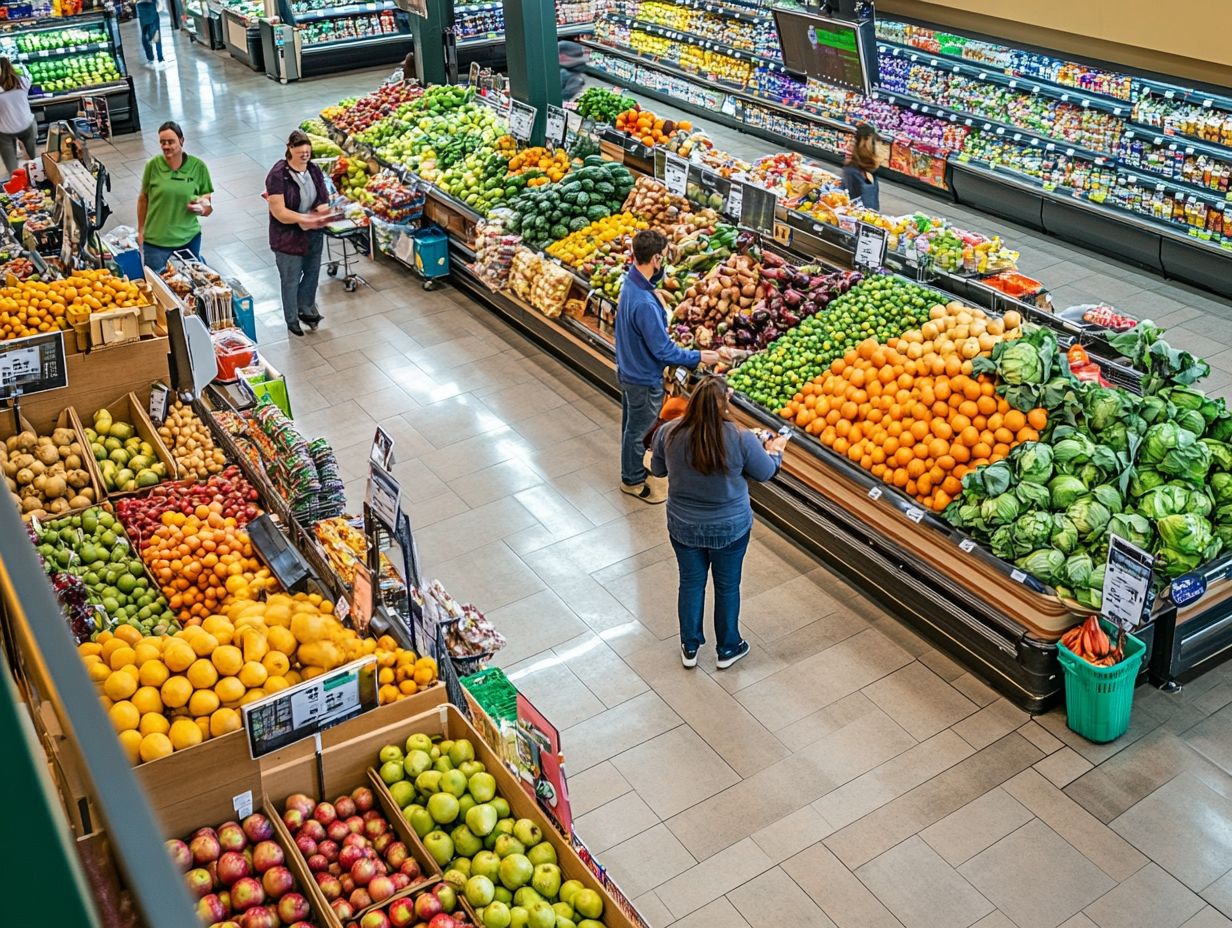27. How CRM Benefits the Retail Food Industry
In today s fiercely competitive retail food industry, grasping and fulfilling customer needs has become paramount.
This article delves into the concept of Customer Relationship Management (CRM), which stands for Customer Relationship Management, and highlights its significance for retail food businesses. By enhancing customer engagement and loyalty, streamlining sales processes, and managing inventory with precision, CRM presents a wealth of advantages.
You ll discover best practices for effective implementation, be inspired by compelling case studies, and explore potential challenges to ensure your business not only survives but thrives.
Dive in as we reveal how CRM can revolutionize your retail food operations!
Contents
- Key Takeaways from CRM in the Retail Food Industry:
- What is CRM and Why is it Important?
- Benefits of CRM for Retail Food Businesses
- Implementing CRM in the Retail Food Industry
- Case Studies: Successful Implementation of CRM in Retail Food Businesses
- Challenges and Limitations of CRM in the Retail Food Industry
- Frequently Asked Questions
- What is CRM and how does it benefit the retail food industry?
- How does CRM improve customer satisfaction in the retail food industry?
- Can CRM help increase sales in the retail food industry?
- How does CRM build loyalty in the retail food industry?
- Are there any other benefits of using CRM in the retail food industry?
- How can businesses implement CRM in the retail food industry?
Key Takeaways from CRM in the Retail Food Industry:

Implementing CRM in the retail food industry can improve customer engagement and loyalty, similar to the way it enhances business operations in other sectors, such as the fitness industry, resulting in increased sales and revenue.
Streamlined sales and marketing processes through CRM can help retail food businesses efficiently reach and communicate with their target audience, as highlighted in 10 ways CRM can help retail businesses thrive.
Efficient inventory management with CRM can help retail food businesses track and manage stock levels, reducing waste and maximizing profits.
What is CRM and Why is it Important?
Customer Relationship Management (CRM) involves a set of methods and tools designed to help you manage interactions and relationships with your customers effectively. This approach ensures you gain a profound understanding of customer behavior, preferences, and satisfaction levels.
The true value of CRM software lies in its capacity to centralize customer data, streamline your marketing and sales processes, and elevate customer experiences through informed, data-driven decisions.
Ultimately, this leads to enhanced customer retention and loyalty, making it an invaluable asset for your business.
Benefits of CRM for Retail Food Businesses
Implementing CRM software in your retail food business unlocks a wealth of benefits. You’ll enhance customer relationships with personalized messaging and craft more effective marketing campaigns. Additionally, understanding how CRM supports customer engagement in retail makes streamlining your sales and service processes easier.
These advantages foster increased customer loyalty and better engagement while driving greater profitability, giving you a competitive edge in the market.
Improved Customer Engagement and Loyalty
A key advantage of embracing CRM in your retail food business lies in its powerful ability to elevate customer engagement and loyalty through tailored interactions and personalized experiences. By analyzing insights gleaned from your CRM data, you can craft targeted marketing campaigns that genuinely resonate with your audience, as detailed in how CRM enhances loyalty programs in retail, fostering deeper connections.
By tracking shopping habits, you can offer personalized discounts on frequently purchased items, encouraging those repeat visits you re aiming for.
Implementing successful tactics, such as sending tailored email promotions based on past purchases or launching interactive app features that reward loyal customers with exclusive offers, vividly illustrates the impact of personalized messaging. These strategies elevate customer satisfaction and cultivate a sense of belonging, ultimately cementing loyalty in today s competitive retail landscape.
Streamlined Sales and Marketing Processes

Streamlining your sales and marketing processes through CRM software brings a wealth of benefits, especially for retail food businesses like yours. By automating various operational tasks, you can enhance lead generation and optimize how you manage customer data.
This newfound efficiency boosts your team’s productivity and fosters better alignment between your sales and marketing departments. With automated lead tracking at your fingertips, your team can swiftly identify potential customers and apply targeted strategies tailored to individual preferences and behaviors.
This personalized approach enhances customer interactions and cultivates a deeper understanding of client needs. Moreover, improved communication channels, driven by shared insights and data, ensure that both departments synchronize their efforts toward common objectives.
As a result, this alignment yields more effective marketing campaigns and bolsters sales performance, ultimately driving greater revenue generation and elevating customer satisfaction.
Start implementing CRM today and watch your business thrive!
Efficient Inventory Management
Efficient inventory management is a significant advantage of using a CRM system in food retail. Understanding the role of CRM in restaurant management improves operational processes and supply chain management.
By integrating inventory data with your CRM, you gain real-time insights into sales trends and customer preferences. This helps you manage stock better and improve overall business performance.
This integration gives you the power to forecast demand accurately, reducing overstock situations and minimizing waste. With precise customer data, your supply chain decisions can be informed by actual purchasing patterns.
For example, grocery chains like Kroger effectively use CRM tools to analyze buying trends. This allows them to adjust stock levels according to seasonal demands or promotions.
Embracing data-driven strategies optimizes your inventory and enhances customer satisfaction. You ll ensure popular items are always available and manage less sought-after stock efficiently.
Implementing CRM in the Retail Food Industry
Implementing CRM in food retail requires a strategic approach that mixes best practices with the latest technologies. This includes artificial intelligence to improve customer data management and business processes.
As you embark on this journey, understanding key considerations will help ensure a smooth transition. It allows you to fully harness the benefits of CRM solutions.
Key Considerations and Best Practices
When implementing CRM in food retail, focus on effective customer data management. Prioritize user training and establish metrics to measure success.
By adopting these strategies, you can enhance your CRM experience and build stronger customer relationships.
Pay close attention to data quality; accurate and up-to-date information fosters trust and engagement with customers. User adoption is also critical, as smooth integration and tailored training help your team adapt.
Ongoing support is vital for maintaining motivation and addressing challenges. Regularly assess your performance using metrics that reflect customer satisfaction and loyalty.
Finally, align your CRM objectives with your broader business goals. This ensures your efforts contribute to sustainable growth and a stronger market position.
Case Studies: Successful Implementation of CRM in Retail Food Businesses

Examining case studies on successful CRM implementation in retail food businesses offers valuable insights. You ll see how these companies have revolutionized customer experiences and improved operational efficiency.
By leveraging customer insights and data analysis, you can witness how these businesses achieved remarkable results in customer satisfaction, engagement, and retention.
Real-Life Examples and Results
Real-life examples of CRM in the food sector show impressive results, like increased customer satisfaction and profitability. These businesses have skillfully tailored their marketing campaigns to boost customer loyalty.
For instance, a national grocery chain struggled with customer engagement. After adopting a comprehensive CRM system, they segmented their customer base and analyzed purchasing habits for personalized promotions.
The outcome? A 20% increase in quarterly sales growth and a 15% boost in customer retention within just six months.
Similarly, a local caf embraced a loyalty program integrated with their CRM. This strategy helped them track customer preferences and behaviors, leading to a 25% increase in repeat visits.
This showcases how targeted strategies can lead to measurable improvements in customer engagement and business success.
Challenges and Limitations of CRM in the Retail Food Industry
While the advantages of Customer Relationship Management (CRM) in the retail food industry are plentiful, it’s important to recognize that challenges and limitations do exist.
You may encounter hurdles such as data integration issues, user adoption struggles, and the ongoing task of nurturing customer relationships.
Grasping these obstacles is crucial for successfully navigating the intricate landscape of CRM implementation and ensuring your business thrives.
Potential Obstacles and How to Overcome Them
Potential obstacles in CRM implementation often center around user adoption and the need for accurate information, which can prevent you from fully reaping the benefits of customer relationship management.
To tackle these challenges, providing comprehensive training is essential. Additionally, ensuring that your data remains consistently updated and accurate is vital.
Effective user adoption isn t just about initial training sessions; it s about fostering a culture of ongoing learning that motivates your team to engage with the system regularly.
You can achieve this through regular refreshers, user workshops, and easily accessible resources, making sure everyone feels comfortable and proficient with the CRM’s features.
Strong leadership support is vital in pushing the CRM initiative forward. As a leader, you can advocate for its value and address any resistance among your team members.
Transparent communication about the system s benefits and the importance of accurate data reinforces its relevance, encouraging your users to actively participate in keeping information up to date.
Frequently Asked Questions

What is CRM and how does it benefit the retail food industry?
CRM stands for Customer Relationship Management, a system that helps businesses manage their interactions with customers. In the retail food industry, CRM can improve customer satisfaction, increase sales, and build loyalty.
How does CRM improve customer satisfaction in the retail food industry?
CRM allows businesses to collect and analyze customer data, including purchase history and preferences. This information personalizes the customer experience, leading to increased satisfaction. CRM also helps resolve customer complaints and issues promptly, further enhancing satisfaction.
Can CRM help increase sales in the retail food industry?
Yes, CRM can boost sales by improving customer retention and encouraging repeat purchases. By using customer data to target promotional offers and discounts, businesses can entice customers to make more purchases. CRM also identifies and targets potential new customers through lead generation and marketing campaigns.
How does CRM build loyalty in the retail food industry?
By providing a personalized customer experience and offering targeted promotions, CRM helps businesses build loyalty with customers. Additionally, CRM allows businesses to track and reward customer loyalty through loyalty programs, further strengthening the customer-business relationship.
Are there any other benefits of using CRM in the retail food industry?
Yes, numerous benefits include improved inventory management, streamlined business processes, and more effective communication with customers. CRM also tracks and analyzes sales data, allowing businesses to make data-driven decisions for more efficient operations.
How can businesses implement CRM in the retail food industry?
Various CRM software options are available, ranging from simple systems to complex, customizable solutions. It is crucial for businesses to assess their specific needs and choose a CRM system that fits their requirements and budget. Proper training and integration of the system are essential to fully reap the benefits of CRM.






